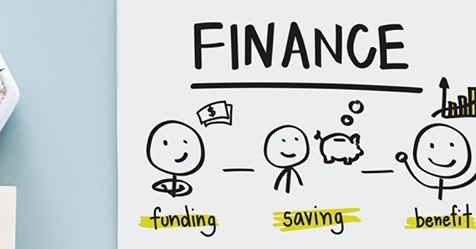Love the Matt Williams quote from today's Airlie Australian Share presentation "Is Wesfarmers shrinking to Glory?" $MFG #investing#contrarian #value #financialplannermelbourne#financialplanningmornington #investments
Blog
Cash is King! Financial Planning for Small Business
Flinders Wealth provides expert insights for Workwise by Officeworks
#startup #businessplan #financialplannermelbourne #financialplannermornington
Flinders Wealth featured in Professional Planner Magazine
https://www.professionalplanner.com.au/featured-posts/2018/01/22/a-degree-above-most-61023/
Thinking of starting a business
Thinking of starting a business - Flinders Wealth discusses the importance of a business plan with WorkWise by Officeworks
Your guide to writing a business plan https://www.officeworks.com.au/workwise/business-basics/your-guide-to-writing-a-business-plan
Thinking of Downsizing
Flinders Wealth talks with Sydney Morning Herald
Tips & Traps of Self-Diagnosing your Finances
Flinders Wealth was recently interviewed for some tips and traps in relation to people self diagnosing their finances.
Click here to read the full interview.
Flinders Wealth Nominated for Excellence Award
Flinders Wealth is excited to confirm it has been nominated as a Finalist in the IFA Excellence Awards for 2016. These awards aim to benchmark success in the independent and non-aligned financial advice sector. The winners will be announced in August – fingers crossed! Check it out here - http://www.ifa.com.au/ifaawards/
Thinking outside the square
trying to buy a home in Melbourne and Sydney
Flinders Wealth was recently interviewed by Vice Magazine regarding the challenges young people are facing as they consider entering the expensive property markets of Melbourne and Sydney.
Click here to read the article.
Avoid the Squeeze! How much should I borrow for a house?
“Debt is the slavery of the free.” Publilius Syrus, former Roman slave, 42 BC
How much should I borrow for a house? This is a question we are frequently hearing from clients as Melbourne’s median house price blazes past $700,000. Prices are reflecting my 4-year-old son’s favourite Buzz Lightyear saying “to infinity and beyond”!
It is worth considering where the median house price was 10-years ago. In 2006 the median price was around $350,000. Since then the typical home owner has seen their property double in price (a 100% return) and many latte sipping suburbs have seen even stronger growth.
Over the same 10-year period incomes increased by around 40% (ABS data), squeezing recent home buyers’ budgets as mortgage levels soared beyond incomes. It’s no wonder buyers are seeking expert financial advice.
We have 5 smart strategies to stop you from sinking with too much debt.
1. Ditch your debts. Before taking on a mortgage your first task should be to dump your other debts because they’re costing you a lot more than you think. Credit cards, car loans and personal loans can charge interest anywhere up to 19% a year.
2. Don’t rush into buying. Buying a house is one of the biggest purchases of your life. For most, property is an emotional purchase but remember to be flexible as there is going to be another perfect property to fall in love with just around the corner. Knowing the local property market, developing a repayment plan, finance pre-approval and property inspections are a must before buying.
3. 20% deposit. By saving a 20% deposit you will avoid the dreaded ‘Lenders Mortgage Insurance (LMI)’. LMI provides insurance for the bank and is paid for by you. Most underestimate the cost. Based on a $650,000 mortgage expect to pay LMI of $25,000, which is added to your mortgage and repaid with interest over 25 years. By putting down a decent deposit you will have equity in your house from day one and better still it provides a buffer if house prices happen to fall. Just ask people from the UK, US, Western Australia or Northern Queensland about their own experience with property prices.
4. Borrow less than you can afford. From our experience we’ve found when mortgage repayments exceed 30% of after-tax income, you can run into mortgage stress. ASIC’s Money Smart website has some helpful mortgage calculators to assist you with this. And if you are expecting kids consider the impact of time off work and relying on one income.
5. Interest rate increases. With interest rates at record lows, it’s easy to think borrowing money at 4.5% is easy. In your planning, you should factor in the possibility of interest rates reaching 7% or even 10%. Your parents will recall when home loan interest rates in the early 1990’s exceeded 15%. Expect the unexpected with interest rates.
In summary, do the legwork before buying and develop a plan to avoid the squeeze! This will give you the highest probability of setting yourself up for a strong financial future.
Information provided by Flinders Wealth is general in nature and does not take into consideration your personal financial situation. It is for educational purposes only and does not constitute formal financial advice. Remember, the value of any investment can go down as well as up. Before acting, you should consider seeking independent personal financial advice that is tailored to your needs.
Recent
- Shrinking to Glory
- Cash is King! Financial Planning for Small Business
- Flinders Wealth featured in Professional Planner Magazine
- Thinking of starting a business
Labels
- Super, (5)
- startup (2)
- Spending (2)
- SMSF (1)
- Shares (1)
- Retirement Planning, (5)
- Property (3)
- Pension (1)
- News, (1)
- LRBA (1)
- Life Insurance (3)
- Investing (4)
- Interest Rates (2)
- Income Protection, (1)
- How should I borrow? (1)
- How much should I borrow for a house? (1)
- Gearing (1)
- first home buyer (1)
- FinancialPlanner Mornington (1)
- Financial Planning Mornington (1)
